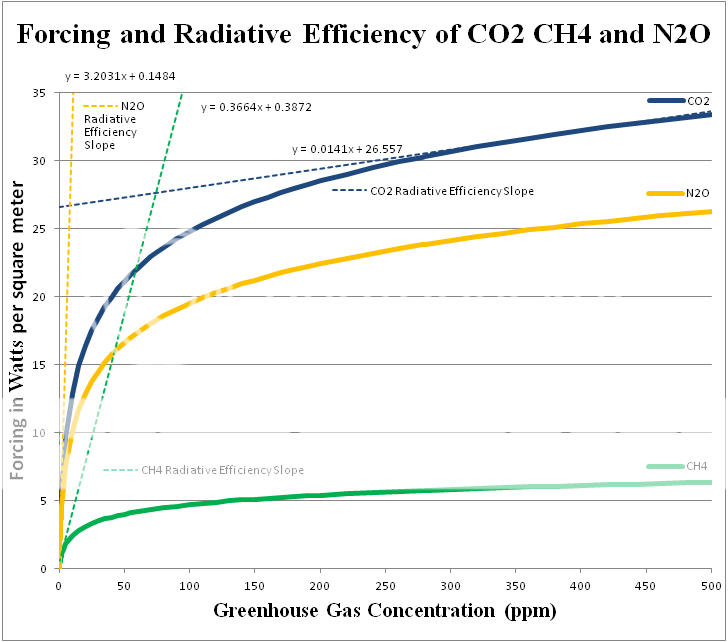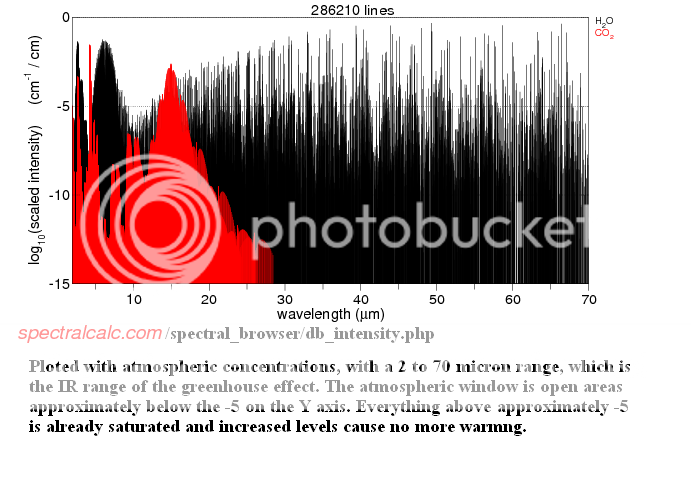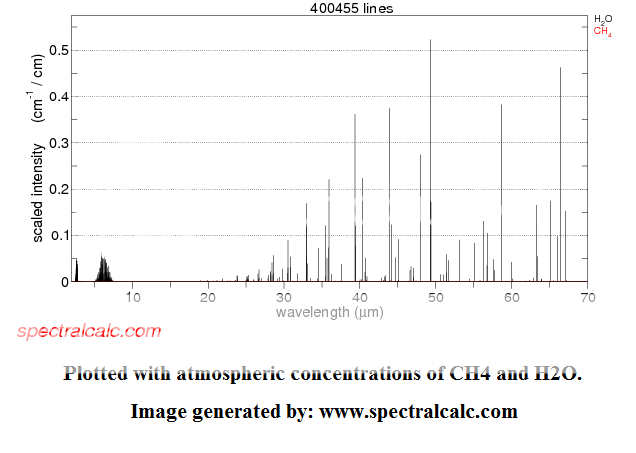Part 2....
Let's take a paragraph from a link from your second one:
The Global Warming Potential (GWP) was developed to allow comparisons of the global warming impacts of different gases. Specifically, it is a measure of how much energy the emissions of 1 ton of a gas will absorb over a given period of time, relative to the emissions of 1 ton of carbon dioxide (CO2). The larger the GWP, the more that a given gas warms the Earth compared to CO2 over that time period. The time period usually used for GWPs is 100 years. GWPs provide a common unit of measure, which allows analysts to add up emissions estimates of different gases (e.g., to compile a national GHG inventory), and allows policymakers to compare emissions reduction opportunities across sectors and gases.
Now let me beak that down to what I see it as:
The Global Warming Potential (GWP) was developed to allow comparisons of the global warming impacts of different gases. Specifically, it is a measure of how much energy the emissions of 1 ton of a gas will absorb over a given period of time, relative to the emissions of 1 ton of carbon dioxide (CO2).
OK, they are honest here. For an added one ton. RE (radiative efficiency) on the other hand is for an added ppb (part per billion.)
The larger the GWP, the more that a given gas warms the Earth compared to CO2 over that time period.
They leave something very critical out here when speaking to those who don't scientifically understand what GWP really is. The number only applies to adding that one ton. It doesn't apply to adding 100 tons. The number only represents one added tome over the given period.
The time period usually used for GWPs is 100 years. GWPs provide a common unit of measure, which allows analysts to add up emissions estimates of different gases (e.g., to compile a national GHG inventory), and allows policymakers to compare emissions reduction opportunities across sectors and gases.
Now this is flat out wrong, because the number is not a variable. It is actually a number that changes as greenhouse gas levels change.
Several years ago, I plotted the RE based on the IPCC AR4 numbers. Came close to their numbers:
IAW AR4 page 33, table TS.2, and table 2.14 on page 212, provided the following for ER:
CO2 0.000014 W/m^2
CH4 0.00037 W/m^2
N2O 0.00303 W/m^2
My slope numbers are 1000 times larger because I plotted with ppm instead of ppb.
Don't you see, these numbers are only good for scare tactics, because they don't apply to adding more than 1 ppb or 1 ton of a gas.
Are scare tactics part of science?
So I ask again, if CH4 is 25 times more potent than CO2, what warming will I see with a doubling of CH4?
Please stop ignoring the question. If you are going to be so focused on the GWP, then you are taking from where the sun doesn't shine if you can't give an answer. It can even have a wide error margin.







